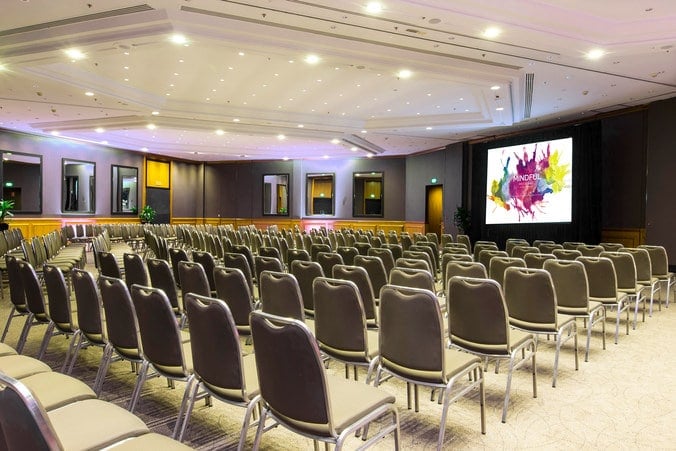
“The fuse has been lit and things will get ugly in the next couple of months.”
These are the words of Gary Dodkins, in relation to a protest he planned to attend last Friday night at the book launch of Stealing from a Child: The Injustice of Marriage Equality by Dr David van Gend in Brisbane.
“The fuse has been lit” is more than a threat, it is a warning of imminent danger.
I imagine the phone calls which were received by the Mercure Hotel at Sydney Airport a week earlier contained similar sentiments.
The hotel had accepted a booking for a meeting of various pro-marriage groups, including Dr van Gend’s Australian Marriage Forum. The details of the event were leaked on an LGBTI advocacy website a few days before it was scheduled to occur, prompting a campaign to pressure the hotel to cancel.
LGBTI activists took to online bullying, with people who had never stayed at the hotel providing damaging reviews on various online holiday websites (the Mercure’s Facebook page was filled with so many negative comments that it was temporarily shut down) and making a number of calls to the hotel switchboard.
So frightened were the staff who received them that event organisers decided to relocate out of concern for the safety of hotel employees who had become collateral damage in this attempt to shut down the event.
Because once a fuse has been lit, there is the potential that it will burn uncontrollably and even non-combatants could get hurt. The blatant disregard for the wellbeing of the hotel staff is ironic for those who claim to be propagating a #LoveWins campaign.
I suspect that the threats were not credible, and that they were made by people who only ever bully others with the relative anonymity and safety provided by the telephone or the internet.
Even so, the organisers were right to withdraw the booking. The hotel management had been placed in an unenviable position: either choose to bow to the totalitarianism of the LGBTI advocacy groups or ignore the potential risk to their staff and the fear which they were experiencing and push ahead with the event out of principle.
Either way, the management would be doing something they did not want to do, and their only “crime” was to accept a booking without discriminating based on the identity of the group who booked.
Thankfully, the staff in this hotel and other companies which choose to not involve themselves in political gameplaying don’t often face threats of violence, and I hope it remains this way, even with the prediction that “things will get ugly in the next couple of months.”
But this is not the only pressure brought to bear on companies which either want to remain neutral or stand in defence of marriage.
Increasingly, boycotts are threatened or undertaken based on the views of the owners or managers. Last year, one of the owners of the Lobethal Bakery in South Australia expressed her disappointment that her local newspaper took sides in the same-sex marriage debate.
The LGBTI activist machinery kicked into gear, and the bakery was subject to online abuse and a campaign to boycott, punishing all owners and staff for the views of one. If the boycott was successful, casual employees and suppliers would be the ones first affected, more non-combatants becoming collateral damage now that “the fuse has been lit.”
Is this really where we are as a country, a place where we allow debates to be decided not on the strength of our arguments but rather on who can make the most intimidating threats, or exert the most financial pressure through boycotts? And is it really where we want to be?
Great societies are built and sustained on a level of public discourse which respects the truth and seeks the common good, where matters so crucial to our identity and social fabric be able to be discussed freely. Great debaters allow those who disagree with them to test their ideas so that they can make sure they hold up to even the most piercing of scrutinies. After all, if we are sure we are right, then we should have nothing to fear from being challenged.
And if we are not sure, then we should be seeking more information before making a decision, particularly a decision as important as the meaning of marriage, because it will have intended and unintended consequences for us and for generations to come.
What we have seen in these past weeks is the highest form of debate replaced with its lowest form. Tempting as it might be, we cannot return like for like. Heaven knows we don’t need any more fuses being lit.
